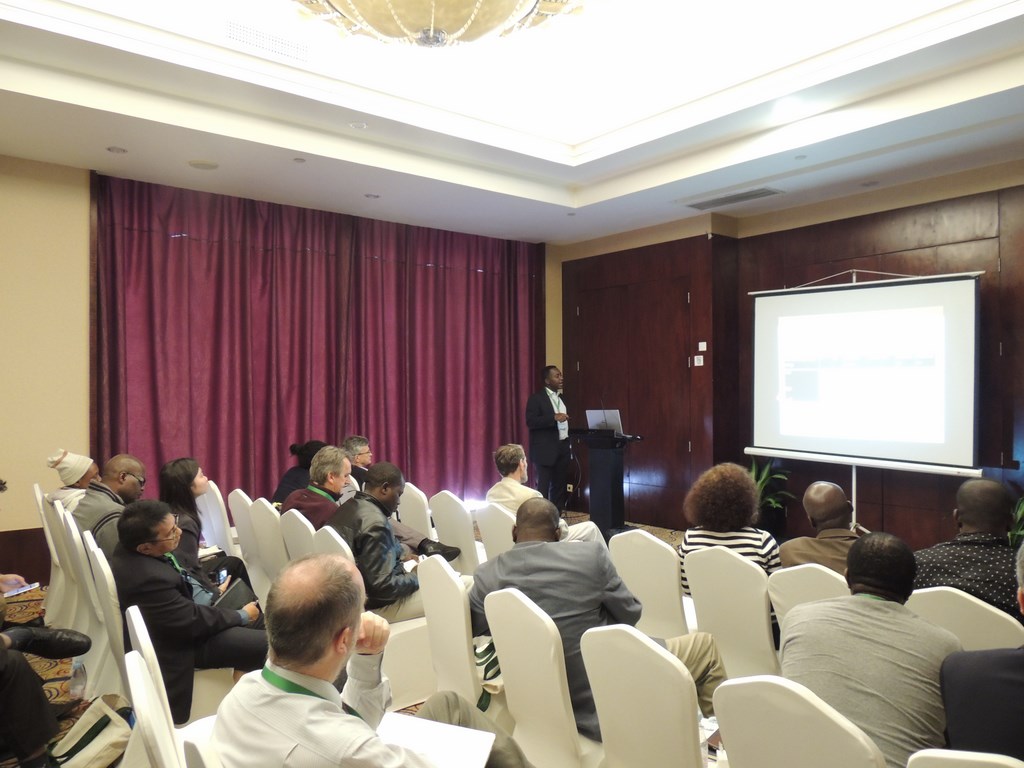Atser, presenting the findings of the extension study in China.
A study on the training needs assessment of extension agents in Nigeria has revealed several gaps and constraints that have limited the effectiveness of the extension service in the country.
While presenting a paper on “The capacity of extension staff in managing weeds in cassava systems in Nigeria” in Nanning, China, during the World Congress on Root and Tuber Crops, the Communication and Knowledge Exchange expert of the Cassava Weeds Project at IITA-Nigeria, Godwin Atser, said that “Maximizing the benefits of improved weed management technologies in cassava systems by farmers entails that extension workers must have the capacity to transfer the improved knowledge from research stations to farmers.”
Put at 1:3011, the ratio of one extension worker for over 3000 farmers drastically fell short of the target of the Nigerian Government to have one agricultural extension worker attached to 800 farmers, posing a serious challenge to the agricultural transformation agenda of the government.
Atser said that apart from the grossly inadequate number of extension workers, the study indicated that the existing workers were older and lacked capacity as a result of underfunding and basic requirements, causing inefficiency.
The study specifically investigated the capabilities of extension staff of Agricultural Development Programs (ADPs) in weed management in cassava systems in Nigeria.
“The findings of the study,” Atser said, “showed that more than 80 percent of extension staff has not had training that specifically targets weed management in cassava.
“There is a knowledge gap on weed identification, types of herbicides, cassava varietal identification, and computer skills among extension staff.
“Furthermore, the extension system in Nigeria is male dominated and most extension agents are 50 years and above. Radio, telephone, and group discussions were the most used communication channels for technology transfer to farmers by extension staff.”
He recommended training extension staff in sustainable management of weeds in cassava systems with specific emphasis on weed identification, herbicide use and application, cassava varietal identification, gender, and computer skills.
Atser concluded by calling for the recruitment of young, educated, and upwardly mobile agricultural extension workers in Nigeria, with intensive capacity development to meet up with the need for effective dissemination of information to farmers on new technologies, varieties, and market opportunities.


1 Comment
Olalude Olanrewaju Alexander
February 27, 2016 at 7:23 amHow can some be part of the training. I wish I can take part in the training. Please let me know